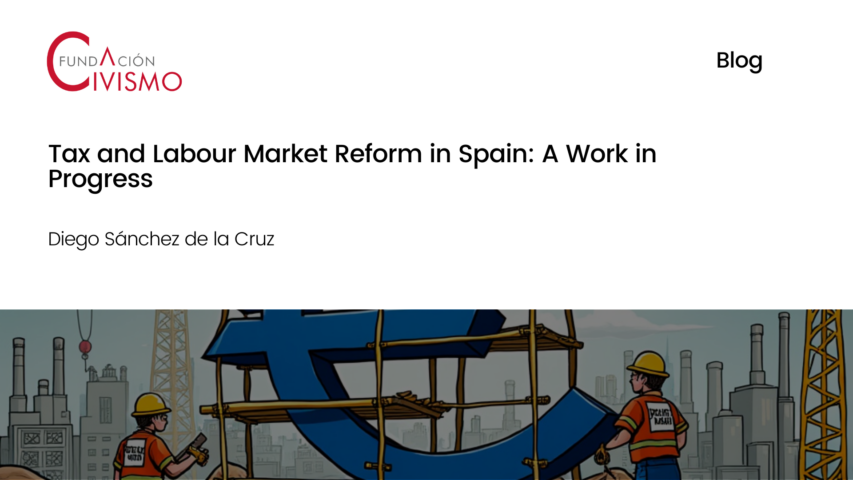Tax and Labour Market Reform in Spain: A Work in Progress

Tax and Labour Market Reform in Spain: A Work in Progress
Diego Sánchez de la Cruz // 03.05.2016
When former Prime Minister José Luis Rodríguez Zapatero and his Socialist party (PSOE) took office in early 2008, they argued that Spain was not entering an economic crisis, in spite of the fact that all macroeconomic indicators pointed to the contrary. Eventually, the Zapatero government took action, but instead of tackling the country’s deteriorating fiscal situation, it turned to large stimulus spending measures that made matters worse.
In 2010, very limited austerity measures were introduced. The government did pass a 5 percent cut on the salaries of public workers as a well as a freeze on retirement pensions. However, the bulk of Zapatero’s adjustment plan fell on the shoulders of taxpayers in the form of hikes in income taxes, the value-added tax (VAT), corporate taxes, and estate taxes. The strategy proved self-defeating, as Spain entered a recession, public debt jumped from 40 to 80 percent of GDP and government deficits surpassed 10 percent of GDP.
In 2012, soon after Mariano Rajoy’s conservative party (PP) won an absolute majority in the General Election, he launched a series of deficit reduction measures that combined spending cuts with increases in direct and indirect taxes. Throughout the legislature, spending fell by 9 percent and revenues grew by 9 percent, which halved the budget deficit from 10 to 5 percent of GDP.
Too much focus was placed on raising taxes, which had a damaging effect on the recovery. However, the government did pass a wide-ranging labour market reform which reduced the power of collective bargaining and favoured wage adjustment as a job-saving mechanism. The new law has proven successful, and the unemployment rate has dropped from 26 to 20 percent. Also, tax cuts that came into effect in 2014, 2015 and 2016 helped put some money back into taxpayer pockets. Corporation tax has fallen from 30 to 25 percent and marginal tax rates were cut for all income levels.
Political instability has grown significantly since the General Election held in December of 2015. The rise of Podemos, a far-left, communist party, was partially offset by the appearance of Ciudadanos, a moderate party. However, the resulting political scenario has proven too polarized, to the point that a new General Election will be held during the summer, following the lack of understanding between all four parties (PP, PSOE, Podemos and Ciudadanos).
As a result of this complex scenario, tax and labor market reform will have to wait some more time to become a reality. What can happen next? Different scenarios that may arise from the upcoming replay of our General Election:
1. A center-right coalition between PP and Ciudadanos has enough votes to govern. This should lead to second generation reforms that focus on improving the labor market reform of 2012 and redesigning the tax system to make it more attractive.
2. A big coalition government including PP and PSOE comes to power in order to put an end to political instability. The result would be somewhat mixed: there could be progress in some areas but also setbacks in others.
3. A leftist coalition involving PSOE and Podemos is able to seize power. Under this scenario, radical measures could be approved, including a complete reversal of the labor market reform of 2012. Should this happen, Spain could follow the example of Greece and end up in a very troubling position.
*This article builds upon issues discussed by Diego Sánchez de la Cruz and James M. Roberts in a paper published in Spain by Civismo (can be found here) and in the US the Heritage Foundation (can be found here).
Diego Sánchez de la Cruz is Director of Civismo. He is the author of various recent reports on the need for, and ways to, promote economic freedom in Spain.
EPICENTER publications and contributions from our member think tanks are designed to promote the discussion of economic issues and the role of markets in solving economic and social problems. As with all EPICENTER publications, the views expressed here are those of the author and not EPICENTER or its member think tanks (which have no corporate view).



